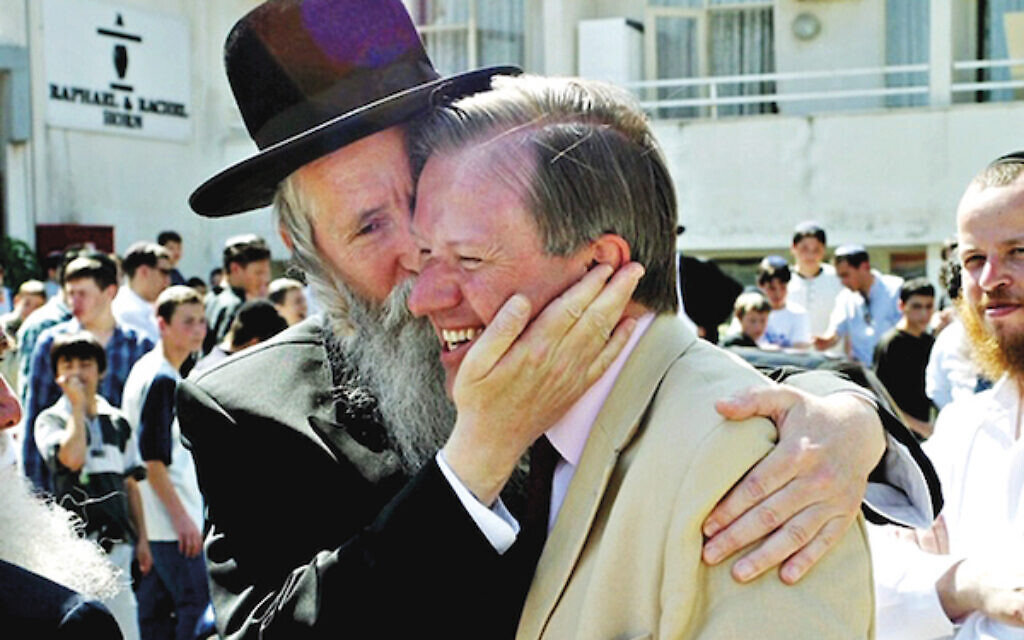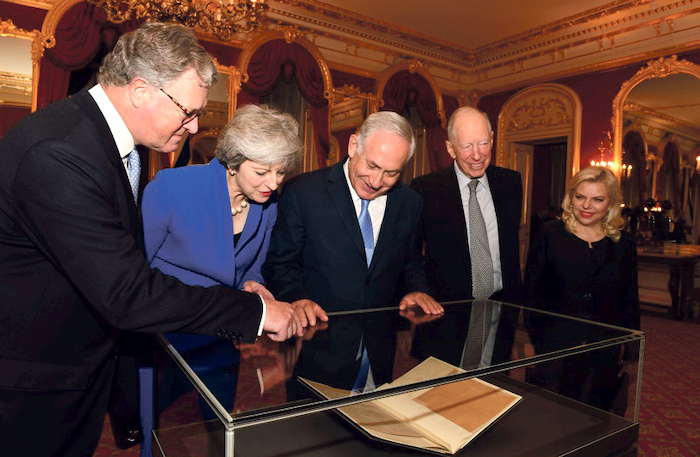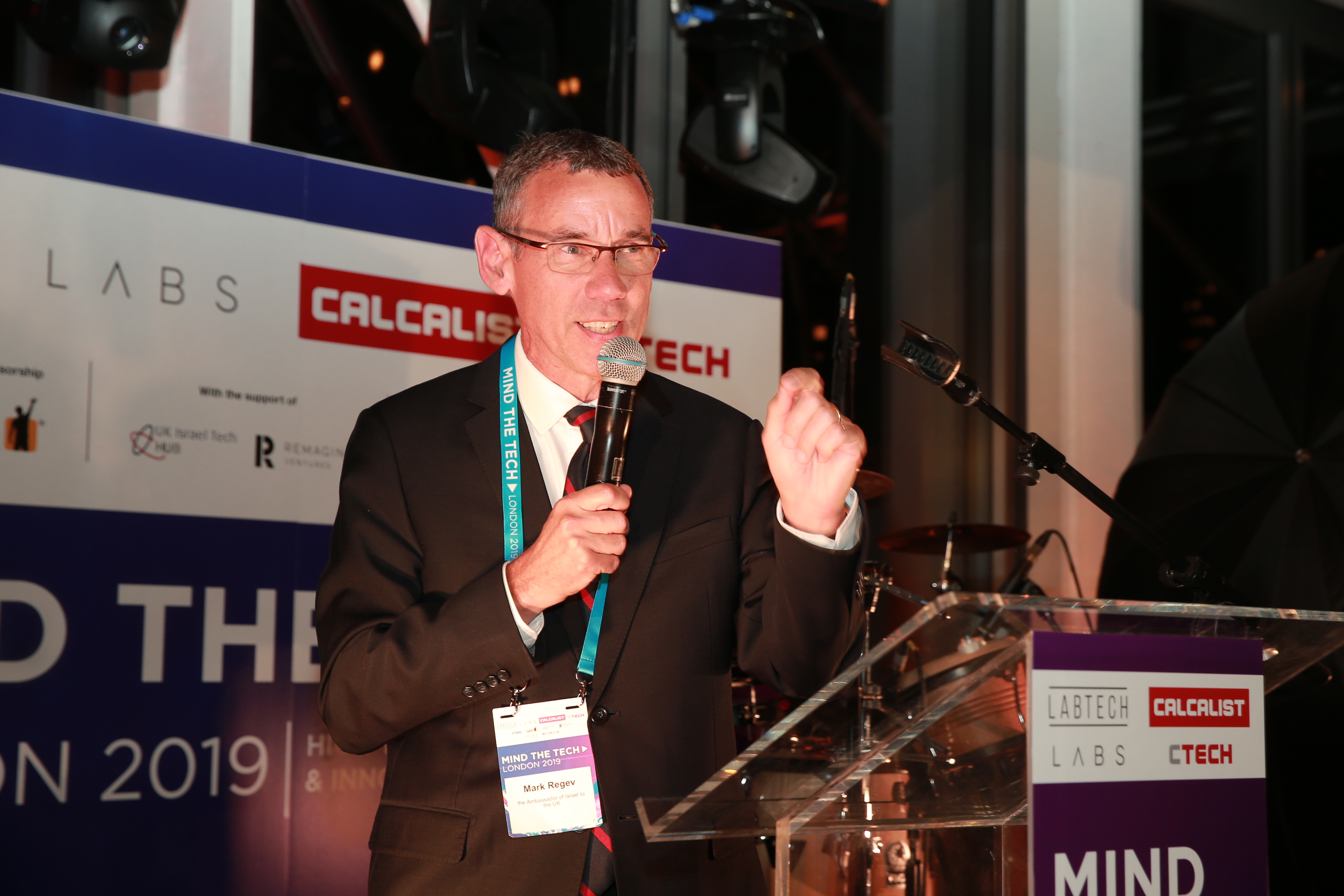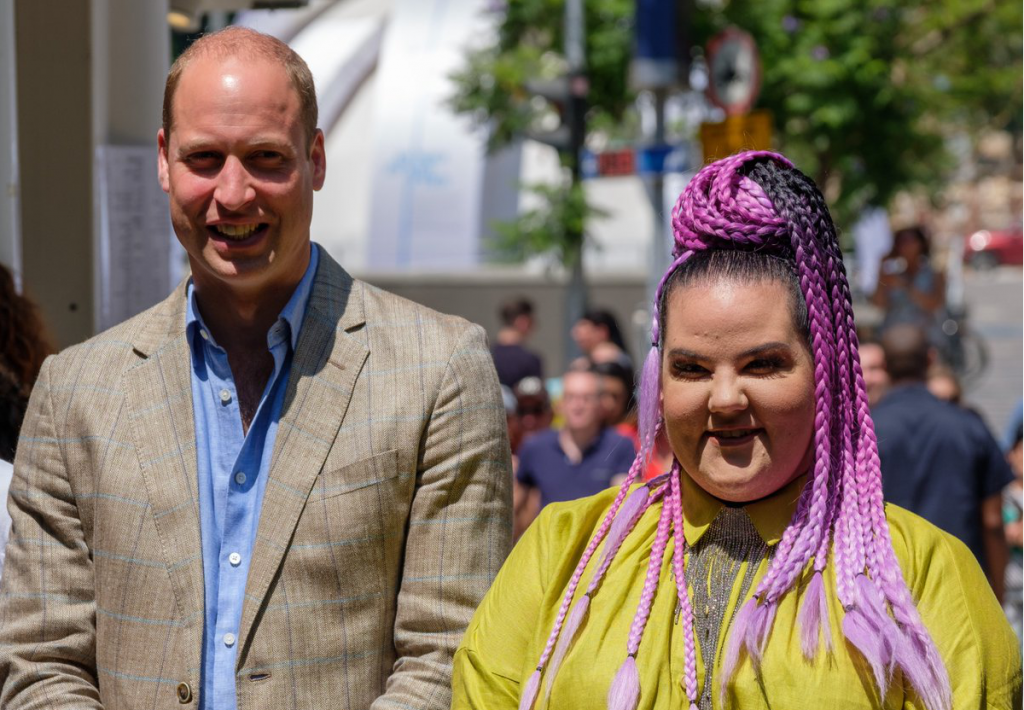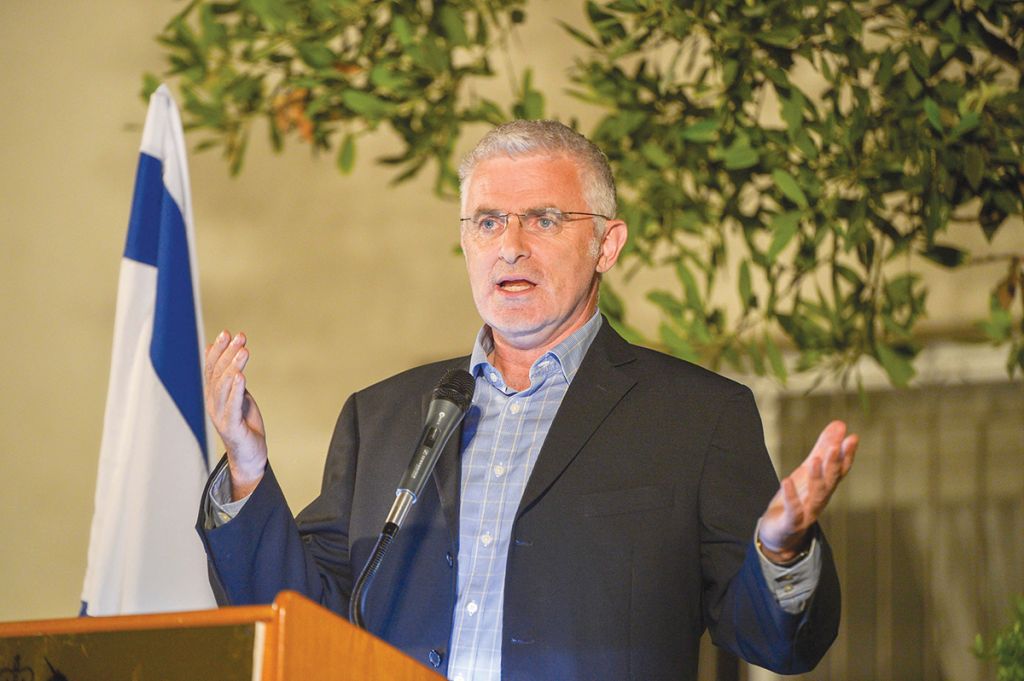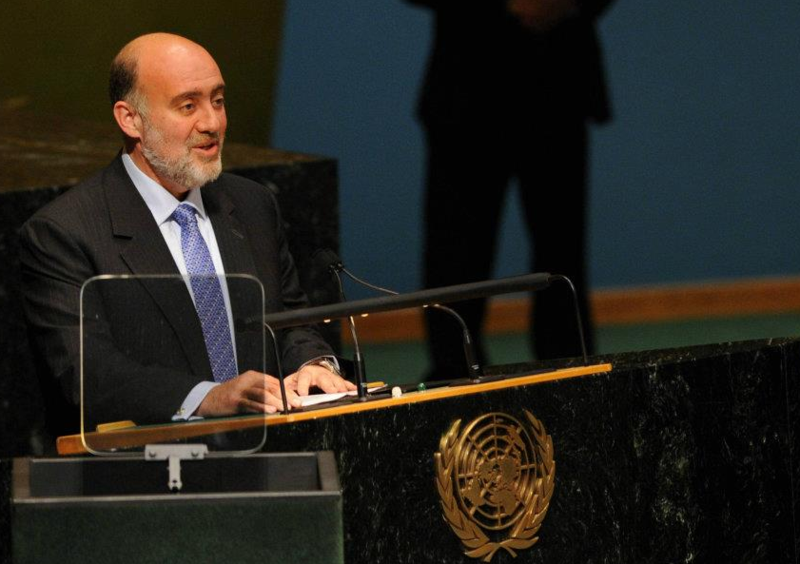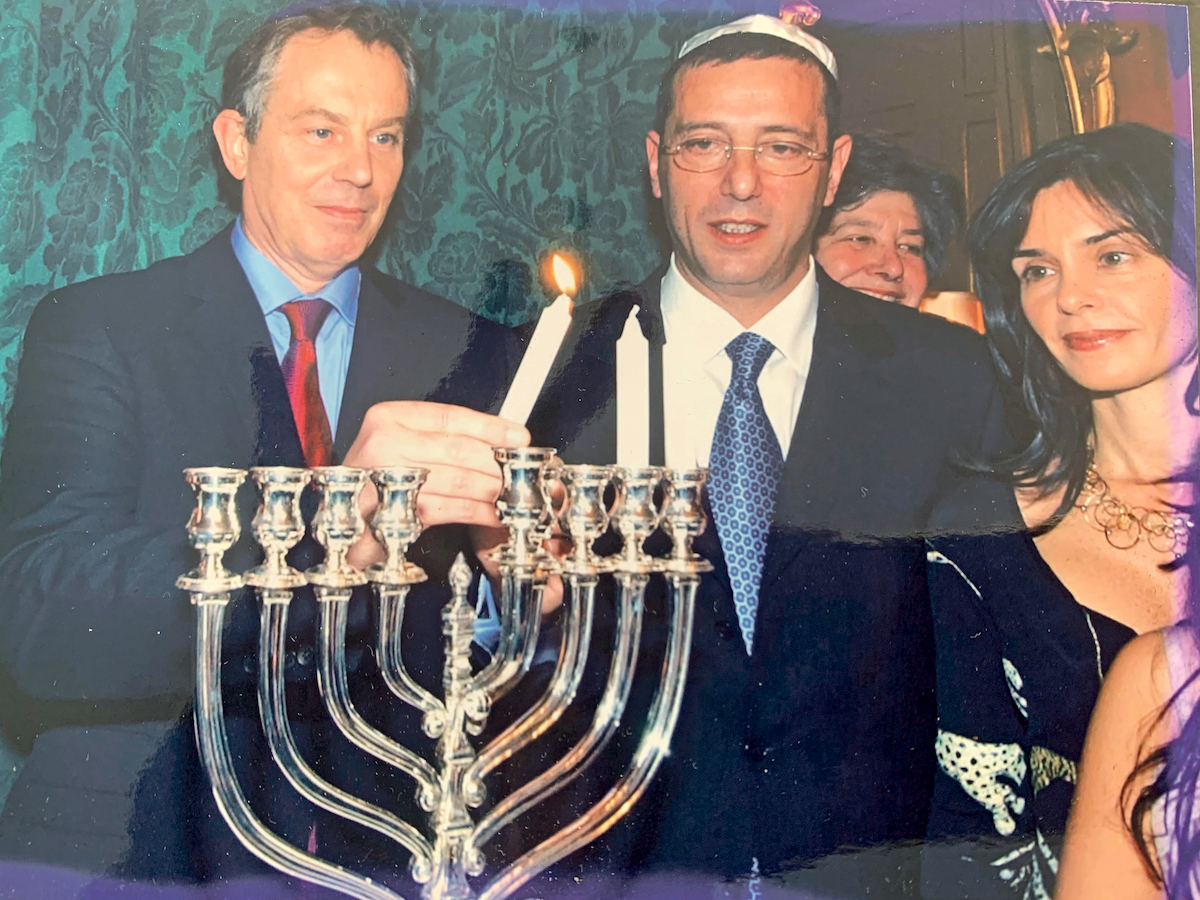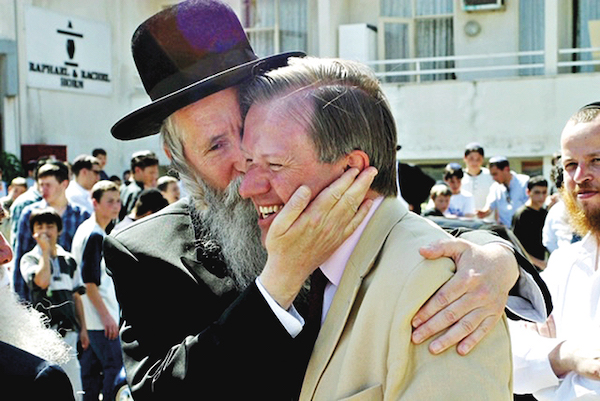Ambassadors from Britain and Israel reflect on 70 years of diplomatic ties
Israeli envoys to Britain and their UK counterparts talk on seven decades of formal relations – moments of joy, sorrow, conflict and of history being made
Mark Regev, Israeli ambassador since 2016
As I approach the end of my posting here in London, I have been truly fortunate to serve during such an extraordinary time for the partnership between our two democracies. Choosing a winning moment for me is, therefore, difficult, but two stand out in particular.
The first has to be the Balfour Declaration centenary celebration at Britain’s prestigious Spencer House in November 2017. Graciously hosted by Lord Rothschild, whose predecessor was the recipient of that famous statement of British policy, and in the presence of the current Lord Balfour, the assembled great and good included Boris Johnson, then foreign secretary, and the two prime ministers, Theresa May and Benjamin Netanyahu, who was welcomed as a guest of Her Majesty’s Government.
Get The Jewish News Daily Edition by email and never miss our top stories Free Sign Up
Theresa May described the Declaration as “a letter which gave birth to a most extraordinary country”, and stressed Britain’s pride in “our pioneering role in the creation of the State of Israel”.
Benjamin Netanyahu thanked the UK for its “foresighted” declaration, for “liberating the Holy Land from 400 years of Ottoman domination”, and for “valiantly standing alone against the Nazi tyranny”. He even visited Boris Johnson’s office and saw the desk from which the Declaration was signed, used by successive foreign secretaries including Dominic Raab today.
The second moment came the next year, in June 2018, when it was our turn in Israel to roll out the red carpet for a very important guest. I was lucky enough to accompany His Royal Highness The Duke of Cambridge when he made history as the first senior British royal to pay an official visit to the Jewish state. During his incredibly busy schedule, including formal meetings with Prime Minister Netanyahu, President Rivlin and Israeli innovators, he found time to get together with Israel’s then newly crowned Eurovision queen, Netta Barzilai. I understand that the two did not attempt Netta’s famed chicken dance together.
Taken together, for me, both these historic occasions symbolise the enduring strength of the partnership Israel and Britain have built, and the progress we are continuing to make. Our democracies are closer diplomatically and economically, culturally and socially than they ever have been, and I am sure there will be yet more historic occasions for the next Israeli Ambassador to London to enjoy. Perhaps one day in the not too distant future we might even see the United Kingdom open the doors of its Embassy in Israel’s capital, Jerusalem.
READ MORE:
- UK-Israel: 70 years of relations
- OPINION: A proud partnership, a cherished friendship – UK and Israel united for 70 years
Daniel Taub, Israeli ambassador from 2011 to 2015
Seventy years of UK Israel relations: the best of times, the worst of times
Israelis often see UK attitudes to Israel as something of a conundrum. On the one hand, Britain is one of our closest and warmest partners in trade, culture and academic research. On the other, Britain plays host to a major hub of the campaign to boycott Israel. At times these two trends come together in a Dickensian ‘the best of times, worst of times’ scenario.
In 2012, around the time of the London Olympics, I was delighted to learn that the Globe Theatre had invited Habima, Israel’s national theatre company, to participate in a Shakespeare Olympiad. The national theatre companies of 36 different countries would each perform one of Shakespeare’s plays in their own language on the stage of his own reconstructed theatre.
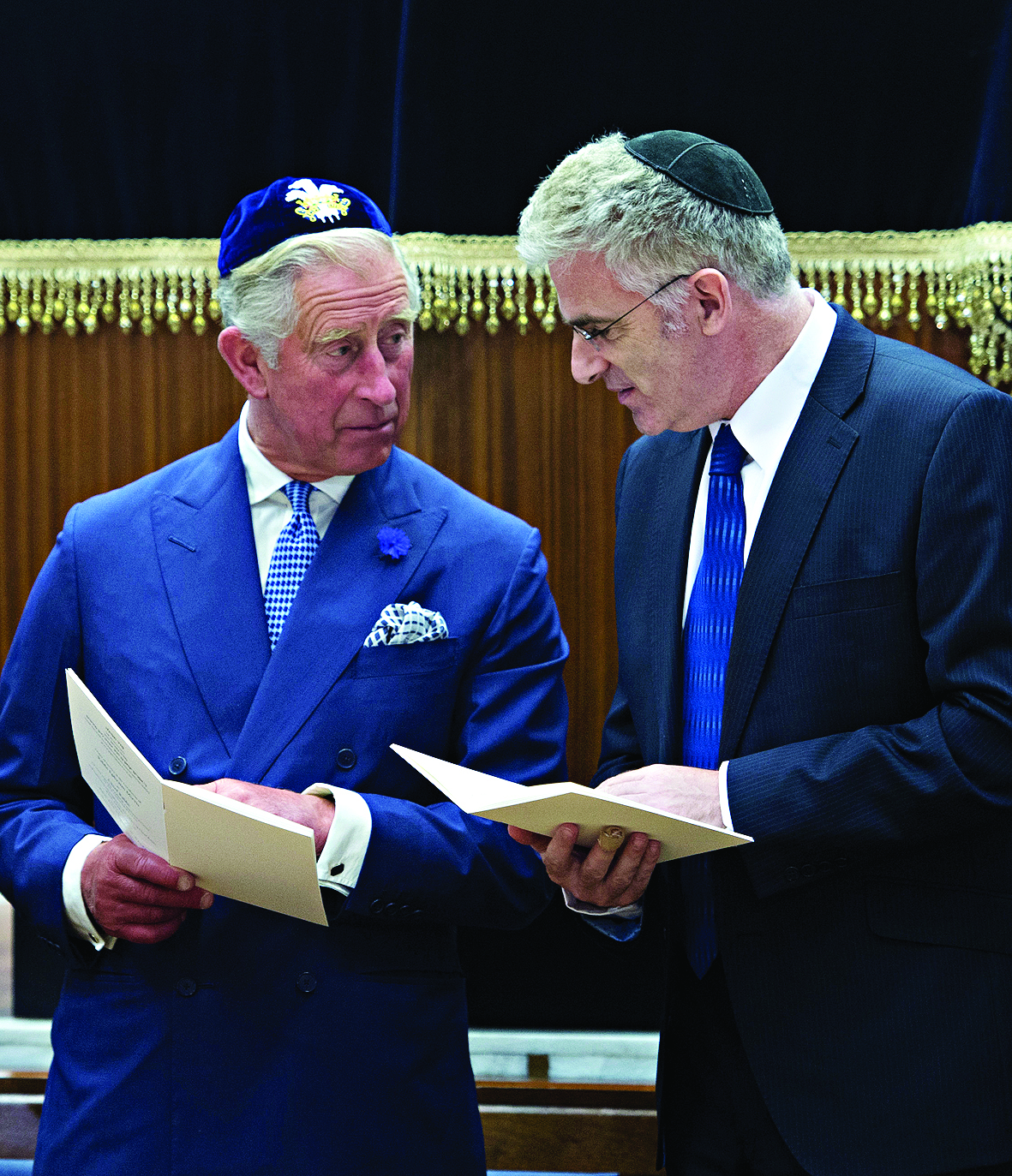
I was less delighted, to say the least, when I learned that the play that Habima had been asked to perform was The Merchant of Venice. Really, I muttered, is playing Shylock the only thing we have to contribute?
As the performance got closer there were other things to worry about. The boycott movement in London began an aggressive campaign against the Israeli performance. The following weeks were spent in a flurry of media, political and security activity to make sure that the play could go ahead as planned.
In the event, thanks to concerted efforts by the embassy staff and the strong support of our friends in the British government, the play went ahead almost without incident. A brief disruption was quickly shouted down by the supportive audience. And as I watched the wonderful Hebrew language production, alongside Ed Vaisey, the UK culture minister who had come as a public statement of support, I began to wonder whether I had been wrong to have bridled at the choice of play and whether there wasn’t something historic about the performance.
For four centuries The Merchant of Venice had been performed about the Jews while the Jewish people could say nothing about it. But here in the rebuilt theatre of Shakespeare, in the Hebrew language which itself had risen from the ashes, an Israeli national theatre company could finally give its own interpretation in its own distinctive voice.
Ron Prosor, Israeli Ambassador from 2007 to 2011
It was early in Israel’s 60th anniversary year, 2008. My team and I were trying to find a way to make this Independence Day, Israel’s Diamond Jubilee, special for both countries. An official royal visit was still a pipe dream, but we realised that even if we can’t bring Windsor Royalty, we can bring pop music Royalty – the Beatles, or at least their living members.
It wasn’t easy. The history between the Holy Land and the Fab Four wasn’t very positive, after the Israeli government banned them from playing here. The official reason given then was that they “had no artistic value and were a bad influence on Israel’s younger generation”. Later it was revealed that the real reason was turf wars between different promoters.
Fast forward back to 2008. In January we went to Liverpool, to the Beatles Museum in their hometown. There we presented an official letter from the State of Israel, expressing our wish to make things right and finally fulfil the opportunity that was squandered in the Sixties. I handed it personally to John Lennon’s sister, Julia Baird, and it was also sent to Paul McCartney, Ringo Starr and the family of George Harrison.
What transpired next astounded us. The following month McCartney said he would be happy to play in Israel and in September 2008 history was made in Tel Aviv. 50,000 Israelis got to hear Sir Paul perform live Hey Jude, Eleanor Rigby and, of course, Let it Be.
As someone who grew up in the Sixties, listening to the Beatles, I felt like I gave Israel the best present I could give it on its 60th birthday.
Zvi Heifetz, Israeli ambassador from 2004 to 2007
We arrived in London in 2004 and before our first Chanukah holiday in the UK, I found out that Chanukah candles had never been lit at the Prime Minister’s House in 10 Downing Street together with the Ambassador of the State of Israel. I was told that “it never was and therefore never will be”.
Eventually, after I contacted Prime Minister Tony Blair, a great friend of the State of Israel, and he was pleased to hold the ceremony at his residence. Indeed, the first Chanukah candle was lit in the presence of the prime minister, my family and myself, and the leaders of the Jewish community.
Today it can be said that this was the only time in the 70 years of the relationship that Chanukah candles were lit in the presence of the Prime Minister and the Israeli Ambassador at 10 Downing Street.
Zvi Shtauber, Israeli ambassador from 2001 to 2004
The scene: Trafalgar Square, bank holiday Monday, 6 May 2002. The occasion: Israel Solidarity Rally
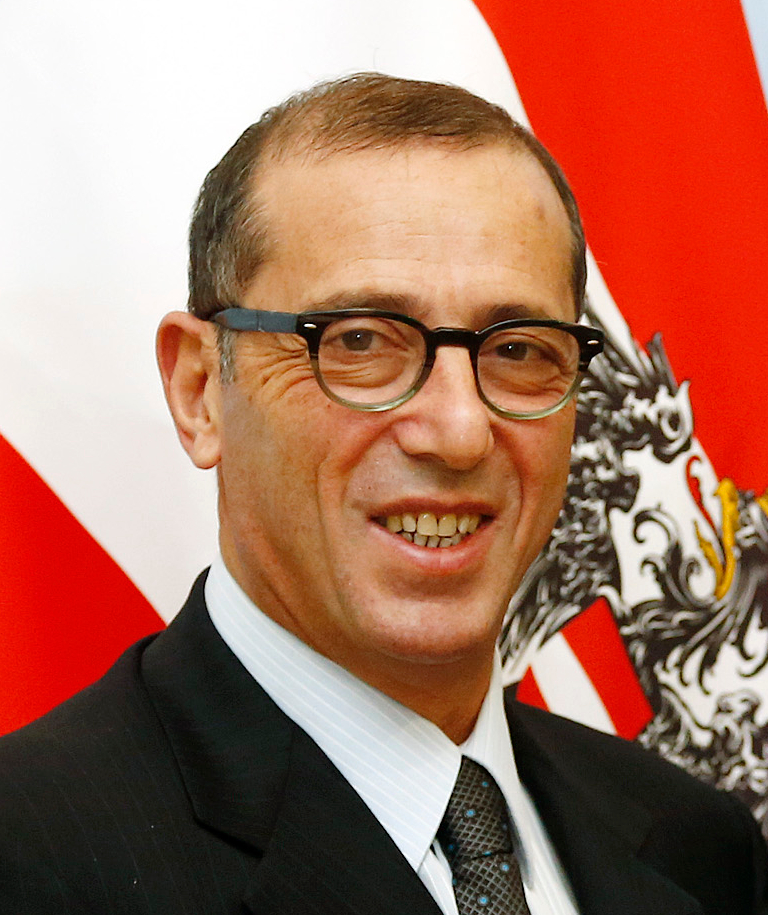
“Friends of Israel, it is my great privilege as the ambassador of the State of Israel to extend to you all greetings from the people and the National Unity government of the State of Israel. The message of support and friendship you bring us today gives us great strength and comfort in these difficult times. We stand here today in our tens of thousands united as one, united in our belief in the right of Israel to exist and flourish, united in our belief in the right of Israel to defend itself from terror and attack and united in our commitment to peace for all.
“On behalf of the government and the people of Israel, I say to each and every one of you here today, thank you, thank you for coming together, for expressing your solidarity and support, thank you for your role in strengthening the bonds between the UK and Israel, thank you for your partnership in making the Zionist dream a reality, L’hiyot am chofshi beartzenu, to be a free people in our land. Thank you.”
Sir Andrew Burns, British ambassador from 1992 to 1995
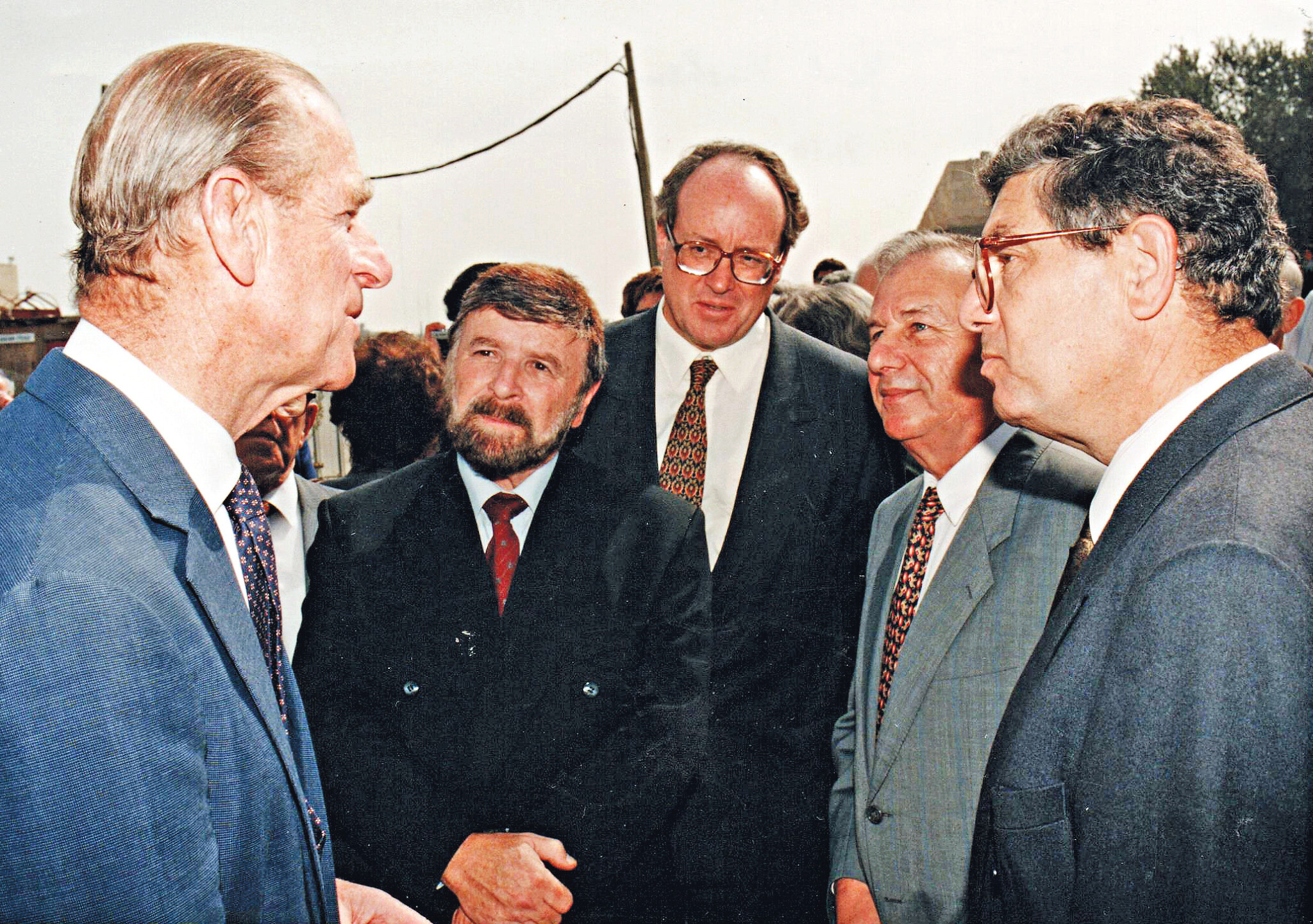
Diplomatic relations between the UK and Israel took a decided turn for the better when I arrived in Tel Aviv in July 1992 and went straight up to Jerusalem to hear newly elected Prime Minister Yitzhak Rabin tell the Knesset that one makes peace with one’s enemies, not with one’s friends. Under the guidance of Shimon Peres and Yossi Beilin, the peace negotiations with Jordan and then the Oslo Peace Accords came to dominate my time in Israel, though they culminated in the assassination of Rabin just as I was due to depart Israel in November 1995. I shall never forget the shock, or the ineffable sadness, of his funeral on Mount Herzl, attended by a huge delegation from the UK, led by Prince Charles and Prime Minister John Major.
My years as ambassador covered an enormously positive and constructive period in our bilateral relationship and in later years we have seen the ties between our countries strengthen so much further. I shall always remember the warmth of Israeli hospitality and the joy of welcoming more than 10,000 guests through our residence in Ramat Gan; the friendship of President Chaim Herzog, who made the first ever official visit to London, and his successor, President Ezer Weizman; and the warm welcome given to figures such as Prince Philip, Margaret Thatcher and John Major.
On a more personal note I have, perhaps naturally, the fondest memories of the astonishingly positive editorial in The Sun (never knowingly well-disposed towards British diplomats) which congratulated me on rescuing Elton John’s concert in Tel Aviv in June 1993.
Sir Sherard Cowper-Coles, British ambassador from 2001 to 2003
The story that moves me most about my time as ambassador to Israel is about something that happened long before I left London for Tel Aviv in the late summer of 2001, though going there as ambassador had been a long-held dream.
I travelled to Israel by bus from Cairo – my first posting – in the early 1980s. What a golden age that seems now. The Jerusalem Post was on sale in the Nile Hilton, parties of American Jewish tourists would spend a week in Egypt and a week in Israel. Hopes for peace were high. The purpose of that visit, an initiative by Jim Callaghan when he was foreign secretary, was to ensure that the young diplomats posted to Britain’s embassies in the Arab world saw at an early stage in their careers the other side of what was then known as the Israeli–Arab dispute. And we did, in an unforgettable week of experiences that only Israel can provide. Later I returned as private secretary first to the permanent secretary at the Foreign Office and then to the foreign secretary, each visit full of memories and deep emotions, all of which only reinforced my ambition to serve one day as Britain’s Ambassador to a country we had helped to create.
And when that chance came I determined, as an Arabist, to make every effort to learn Hebrew – less of a challenge than it might have seemed, given the common semitic origin of both languages.
A British–Israeli friend at SOAS organised the best language course I have ever had, based at Balfour House in north London. I lodged with a wonderful Israeli in Hendon, who fed me delicious Israeli food and phrases. On the last day of my course, I wanted to write a letter in Hebrew, on official Foreign Office paper, to thank my teachers for all they had done. The course organiser kindly agreed to go back to my lodgings to pick up the writing paper while I drafted the letter. She returned, with the paper but also that day’s post. And in that post was a letter to me from someone called Sir Brian Young. “Dear Cowper-Coles,” he wrote. “I was so glad to learn that you were going as our ambassador to Israel. You may not know that, in the summer of 1938, when your father was at Harrow, and I was at Eton, a group of us went down to Dovercourt holiday camp near Harwich to help with the Kindertransport. Because your father was studying German at school, he manned the switchboard, connecting the poor children with their families back in Germany…”
This was a bolt from the blue. My father had died, suddenly, in 1968, when I was 13, and had never mentioned this to me. None of us had any idea. We knew he had been friends with Brian Young, whose father had been Chief Secretary of Palestine from 1930 to 1933, before later becoming Governor of Hong Kong. On my mother’s side, my Dutch grandmother’s family were passionate Zionists, with her sister and brother hiding Jewish children, including in a camp in the woods near Apeldoorn, for which my great-uncle paid with his life. They were so pleased and proud that I was going to Israel. But we had never known that my father, too, had played a small part in Israel’s story. I am afraid I cried.
Sir Simon McDonald, British ambassador from 2003 to 2006
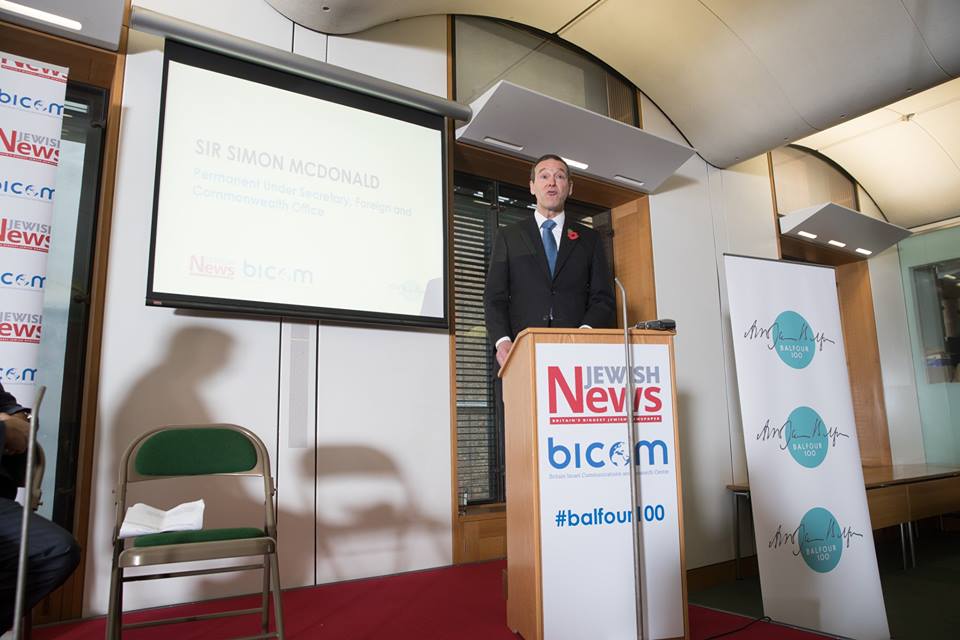
I thoroughly enjoyed my posting to Israel. One of my disappointments is that I never learned Hebrew (unlike my wife), but I did learn that communication is about more than words.
I remember being invited to a large event in a theatre in Jerusalem. There seemed to be more than a thousand people. Part-way through proceedings, it became clear that ‘honoured guests’ were expected to make short speeches, in Hebrew. Ten minutes later I was on stage. First, I paraded the one sentence I had learned by heart: “Slicha, ani lo medaber Ivrit.” Then I said in English that I reckoned a foreigner could get by in Israel with four words of Hebrew: shalom, because that shalom meant so many things and was always positive, beseder, because the key characteristic of Israelis was being relaxed, balagan, because the second key characteristic was being honest, and kippah, because a kippah covered a multitude of sins – at which point I turned my back to the auditorium and lifted my kippah to reveal my large bald patch. The audience laughed. Diplomats need to understand the country they work in and communicate, even when they can’t speak the language!
Sir Tom Phillips, British ambassador from 2006 to 2010
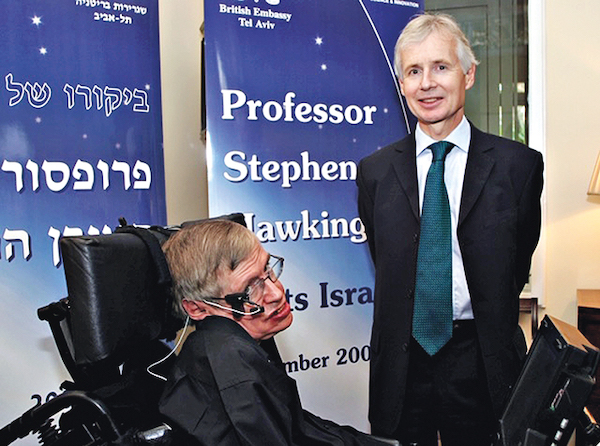
When I returned to Israel in 2006 as UK Ambassador, I went for a walk with an old friend, a rigorously secular member of what was then called the ‘peace camp’. I asked him what – as a non-believer – being Jewish meant to him.
He said: “I am proud to be a small link in a chain of generations reaching back over 3,000 years, and of being part of a people who have overcome tremendous tragedies and contributed in many ways to humanity and mankind.”
That remark has stayed with me as I have pondered the long and unique chain of events which over many centuries led to the re-establishment of the state of Israel. I remain struck by the way the great cycle of Jewish holidays, particularly of course Pesach, embody key moments in Jewish history.
Churchill once said, “A nation that forgets its past has no future,” although of course you can always argue about the extent to which memory is selective or even creative. More recently, I read one of Lord Sacks’ weekly commentaries when he in turn recalled a comment by the BBC journalist Andrew Marr about how “The Jews have always had stories for the rest of us,” before going on to reflect on the meaning of Moses’ exhortation to the Jewish people to continue to tell the Exodus story to their children.
Sacks concludes: “We are the story we tell about ourselves.” The Jewish story, about the escape to freedom and the return to the Promised Land has resonated down the centuries, and, as Andrew Marr said, not just for believing Jews.
Which is one of the reasons why a diplomatic posting to Israel can never be a posting to just another country, but will prompt endless questions about human and historical identity; about the power of narrative; and about the intriguing and happily mostly positive story of UK/Israel relations.
David Quarrey, British ambassador from 2015 to 2019
It’s probably not wise for a former Ambassador to say that Tel Aviv beach provided some of his most memorable moments, but it’s true. There was Prince William sitting with Israeli surfers, eating watermelon and cheese and talking about protecting the oceans. It was one of those points when Israelis understood how much the prince really wanted to get to know the country and its people. And there was the joy of Tel Aviv Pride, being the first Embassy ever to have a float in the parade and looking out at a sea of 250,000 Israelis and visitors celebrating the country’s extraordinary openness and diversity. These are both powerful memories, high points of my four years. But I also miss Friday night dinners at Manta Ray with my partner. So thank you, Tel Aviv beach.
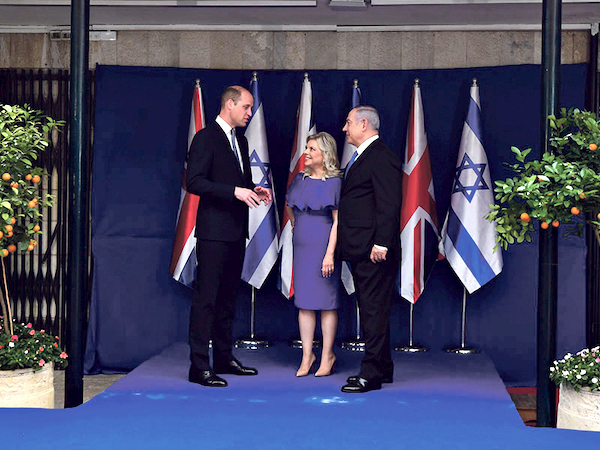

Thank you for helping to make Jewish News the leading source of news and opinion for the UK Jewish community. Today we're asking for your invaluable help to continue putting our community first in everything we do.
For as little as £5 a month you can help sustain the vital work we do in celebrating and standing up for Jewish life in Britain.
Jewish News holds our community together and keeps us connected. Like a synagogue, it’s where people turn to feel part of something bigger. It also proudly shows the rest of Britain the vibrancy and rich culture of modern Jewish life.
You can make a quick and easy one-off or monthly contribution of £5, £10, £20 or any other sum you’re comfortable with.
100% of your donation will help us continue celebrating our community, in all its dynamic diversity...
Engaging
Being a community platform means so much more than producing a newspaper and website. One of our proudest roles is media partnering with our invaluable charities to amplify the outstanding work they do to help us all.
Celebrating
There’s no shortage of oys in the world but Jewish News takes every opportunity to celebrate the joys too, through projects like Night of Heroes, 40 Under 40 and other compelling countdowns that make the community kvell with pride.
Pioneering
In the first collaboration between media outlets from different faiths, Jewish News worked with British Muslim TV and Church Times to produce a list of young activists leading the way on interfaith understanding.
Campaigning
Royal Mail issued a stamp honouring Holocaust hero Sir Nicholas Winton after a Jewish News campaign attracted more than 100,000 backers. Jewish Newsalso produces special editions of the paper highlighting pressing issues including mental health and Holocaust remembrance.
Easy access
In an age when news is readily accessible, Jewish News provides high-quality content free online and offline, removing any financial barriers to connecting people.
Voice of our community to wider society
The Jewish News team regularly appears on TV, radio and on the pages of the national press to comment on stories about the Jewish community. Easy access to the paper on the streets of London also means Jewish News provides an invaluable window into the community for the country at large.
We hope you agree all this is worth preserving.
-
By Laurent Vaughan - Senior Associate (Bishop & Sewell Solicitors)
-
By Laurent Vaughan - Senior Associate (Bishop & Sewell Solicitors)
-
By Laurent Vaughan - Senior Associate (Bishop & Sewell Solicitors)
-
By Laurent Vaughan - Senior Associate (Bishop & Sewell Solicitors)


